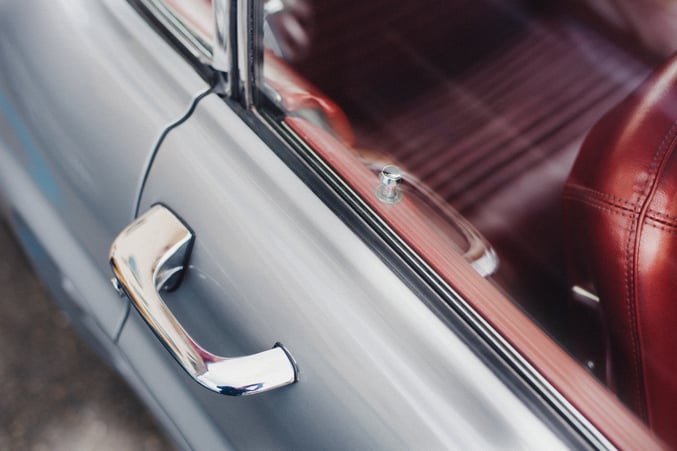
Have you ever gotten frustrated because every job advertisement in your chosen career field tells you that you need experience to get the job, even if you’ve gone to school for it? You wonder how you’ll ever get the experience if no one takes a chance on you. The same can be said for loans. Many car lenders want a positive history with successful loan payoffs. So what happens if you’ve made some poor decisions along the way, and have never had an auto loan? It almost always means you’ll get a big resounding, “Rejected.”
The not-so-good news is it will take a little more effort and tap-dancing to get a car loan, but the good news is there are still lenders willing to help. Here are some things to know if you’re a first-time car buyer with bad credit.
You’ll Most Likely Pay a Higher Interest Rate
When you’re looking at car loan calculators online and they automatically use the current loan rates, you’ll want to enter your own number. Because first-time buyers and people with poor credit scores are higher risk, it typically equals a higher interest rate. You’ll want to factor that in before you go shopping—it will make a difference in what you can afford.
If you’re unsure of what an interest rate is and how it affects your monthly payment, take some time to brush up on the subject before you shop.
You’ll Need a Job or Source of Income
Regular income let's a lender know you can pay back a loan. The longer you’ve been at your job, the better. Although a job is best, there are other sources of income that may count in your situation. They include:
- Unemployment income
- Social Security income
- Investment income
Check with your prospective lender to see what they consider valid income.
You’ll Do Better if You’re More Loan-Worthy
If your credit score is just shy of being good enough or close to getting you a better interest rate, it may be helpful to take a couple months and see if you can get those extra points. The first thing you’ll want to do is get a copy of all three credit reports. You can do this for free one time each year—and you should whether you’re getting a loan or not. After you’ve taken a good, hard look, take these steps to improve your credit score.
- Dispute any errors on your report
- Negotiate and pay off as much debt as you can right away
- Keep your credit card balance well below your limit
- Don’t close any cards
- Pay your bills on time
- Pay twice a month on credit cards to avoid “maxing” out
Another useful tool is to use all of today’s technology. Signup for Credit Karma and use the services to become a more financially responsible citizen.
You’ll Need a Down Payment
When you have two strikes against you—like being a first-time buyer and having bad credit—you’ll need a way to redeem yourself. A good down payment will go a long way in the eyes of the lender. Combine it with solid income and residence and you start to look pretty good. A good down payment is 20%. It’s attainable, especially if you are realistic about what you can afford. Again, use technology and apps to help you save. Set your goal and find ways to make extra money. The more you can put down, the better.
A Cosigner Can Help
When all else fails, a cosigner is probably your answer. Before you enlist the assistance of a friend or family member, ask yourself if you’re really able to pay for a car. When you have a cosigner, you’re putting them in the position to pay off your loan if you default. It’s important to realize that their credit is at risk, as is their money. If you’re ready to pay on time every month for a car, then a cosigner is an excellent solution.
You’ll Want to Do Your Research
Before you buy a car, it’s crucial to know what you’re getting. If you end up with something that costs you a lot more than you budgeted for, it could make your situation worse. Some things to think about when looking for a make or model are reliability, cost of upkeep and what you need versus what you want. A good subcompact with excellent MPG may serve you better than a less efficient SUV. Don’t forget to factor in insurance or cost of gas and maintenance.
You Have to be Realistic
If you’re a first-time buyer and have bad credit, you shouldn’t expect your dream car yet. Instead, be realistic about what you can afford, use the loan as a way to improve your credit, and then start working toward that dream ride.




